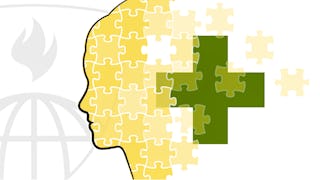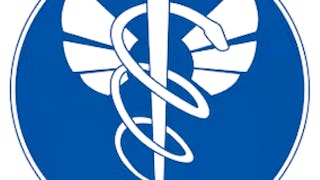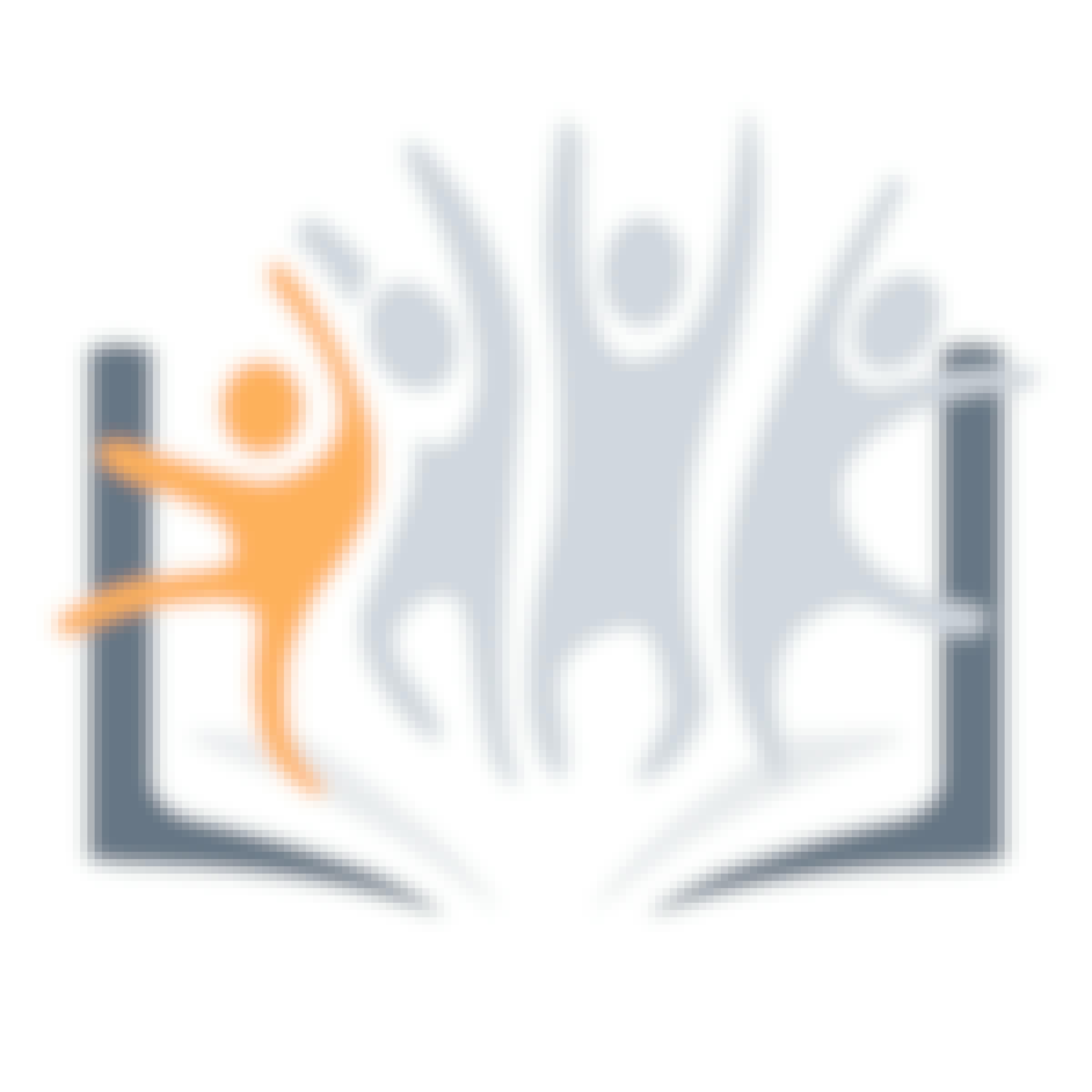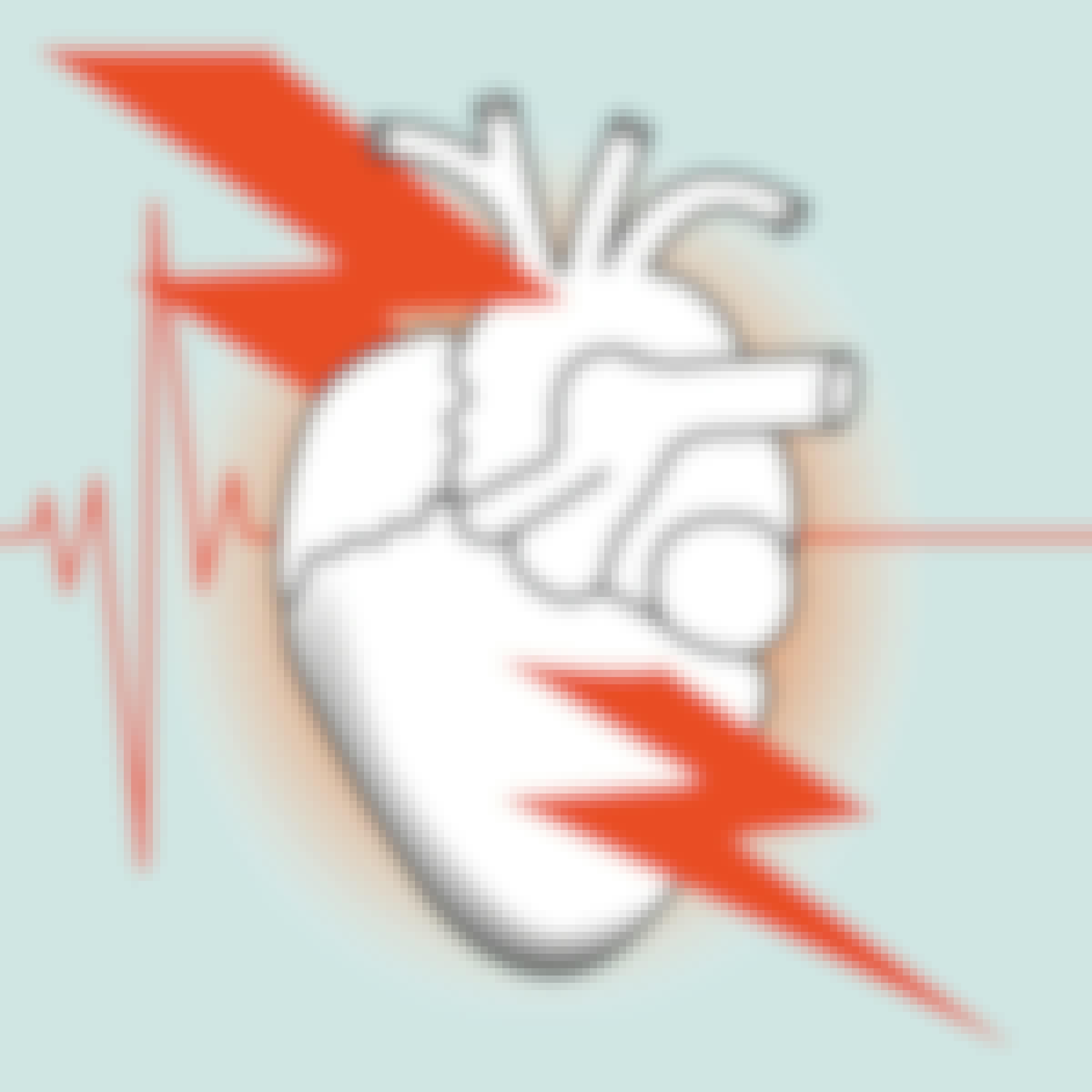Filter by
SubjectRequired
LanguageRequired
The language used throughout the course, in both instruction and assessments.
Learning ProductRequired
LevelRequired
DurationRequired
SkillsRequired
SubtitlesRequired
EducatorRequired
Results for "emergency medicine"
 Status: Preview
Status: PreviewUniversity of Pennsylvania
Skills you'll gain: Vital Signs, Blood Pressure, Respiration, Pulmonology, Health Assessment, Cardiology, Neurology, Patient Evaluation, Anatomy
 Status: Free Trial
Status: Free TrialUniversity of Pennsylvania
Skills you'll gain: Health Equity, Financial Data, Financial Reporting, Financial Statement Analysis, Health Care Administration, Health Care, People Management, Leadership and Management, Health Disparities, Financial Analysis, Cash Flows, Decision Making, Organizational Change, Financial Modeling, Balance Sheet, Health Informatics, Health Systems, Profit and Loss (P&L) Management, Health Care Procedure and Regulation, Insurance
 Status: Preview
Status: PreviewJohns Hopkins University
Skills you'll gain: Active Listening, Crisis Intervention, Triage, Psychological Evaluations, Rapport Building, First Aid, Emergency Services, Interpersonal Communications, Patient Education And Counseling, Mental and Behavioral Health, Stress Management
 Status: Preview
Status: PreviewStanford University
Skills you'll gain: Pharmacology, Infection Control, Clinical Pharmacy, Pharmacotherapy, Medication Therapy Management, Medical Prescription, Infectious Diseases, Patient Evaluation, Long Term Care, Microbiology, Continuous Quality Improvement (CQI), Decision Support Systems
 Status: Free Trial
Status: Free TrialUniversity of Michigan
Skills you'll gain: Financial Statement Analysis, Financial Statements, Health Care Administration, Financial Analysis, Electronic Medical Record, Quality Improvement, Mergers & Acquisitions, Financial Accounting, Balance Sheet, Leadership and Management, Health Systems, Income Statement, Financial Reporting, Accounting, Organizational Leadership, Capital Budgeting, Cost Benefit Analysis, Pharmaceuticals, Strategic Planning, Marketing
 Status: Free Trial
Status: Free TrialUniversity of Colorado System
Skills you'll gain: Maternal Health, Child Health, Obstetrics And Gynecology, Neonatal Intensive Care Unit, Medical Equipment and Technology, Emergency and Intensive Care, Emergency Medical Services, Urgent Care, Pediatrics, Emergency Medicine, Patient Evaluation, Patient Positioning, Pathology, Health Assessment, Vital Signs
 Status: Free Trial
Status: Free TrialUniversity of Colorado System
Skills you'll gain: Chronic Diseases, Health Care Procedure and Regulation, Medical Support, Medical Emergency, Medical History Documentation, Respiratory Care, Student Support and Services, Working With Children, Care Management, Medical Records, Emergency Response, Pediatrics, Medical Management, First Aid, Medication Administration, Nursing, Child Health
 Status: Preview
Status: PreviewAmerican Museum of Natural History
Skills you'll gain: Healthcare Ethics, Medical Science and Research, Life Sciences, Clinical Research, Biology, Emerging Technologies, Research, Molecular Biology, Chronic Diseases, Law, Regulation, and Compliance
 Status: Preview
Status: PreviewEmory University
Skills you'll gain: Emergency Response, Crisis Intervention, Health Systems, Public Health, Sanitation, Maternal Health, Community Health, Infectious Diseases, Chronic Diseases, Water Resources, Mental Health, Nutrition and Diet
 Status: Preview
Status: PreviewUniversity of Zurich
Skills you'll gain: Echocardiography, Acute Care, Cardiology, Rehabilitation, Anatomy, Medical Emergency, Preventative Care, Critical Care, Chronic Diseases, Emergency and Intensive Care, Physical Therapy, Patient Evaluation, Vital Signs, Pharmacology
 Status: Preview
Status: PreviewEmory University
Skills you'll gain: Emergency Response, Media and Communications, Crisis Intervention, Public Affairs, Risk Management, Interpersonal Communications, Health Policy, Public Health, Community Health, Cultural Sensitivity
 Status: Free Trial
Status: Free TrialDeepLearning.AI
Skills you'll gain: Image Analysis, Clinical Trials, Predictive Modeling, Data Processing, Deep Learning, Risk Modeling, Computer Vision, Applied Machine Learning, Statistical Methods, Feature Engineering, Predictive Analytics, Keras (Neural Network Library), Patient Treatment, Data Validation, Treatment Planning, Machine Learning, Statistical Modeling, Statistical Machine Learning, Medical Imaging, Time Series Analysis and Forecasting
In summary, here are 10 of our most popular emergency medicine courses
- Vital Signs: Understanding What the Body Is Telling Us: University of Pennsylvania
- The Business of Health Care: University of Pennsylvania
- Psychological First Aid: Johns Hopkins University
- Antibiotic Stewardship : Stanford University
- Healthcare Management and Finance: University of Michigan
- Emergency Care: Pregnancy, Infants, and Children: University of Colorado System
- Managing Asthma, Allergies, Diabetes, and Seizures in School: University of Colorado System
- The Science of Stem Cells: American Museum of Natural History
- Health in Complex Humanitarian Emergencies: Emory University
- Myocardial Infarction: University of Zurich










